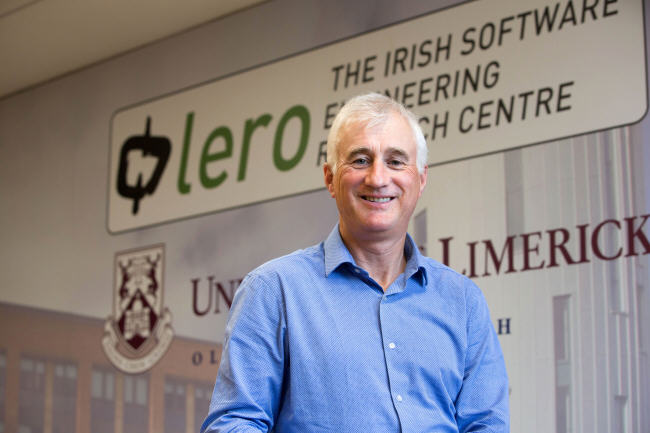Unless urgent measures are taken to combat a skills shortage and come up with better tax incentives for indigenous companies, thousands of Irish software jobs could be forced overseas, a new report warns.
The Irish Software Landscape study was conducted by Lero, the Kemmy Business School at the University of Limerick, and the Centre for Science, Technology & Innovation Policy at the University of Cambridge.
The report found that while the local software sector is growing at its fastest rate yet, skills shortages and increases in Capital Gains Tax are eroding local firms’ ability to compete with other locations such as the UK where the government has increased incentives available for local companies.
The report suggests that indigenous companies, which make up almost 80pc of the total number of software firms in Ireland, have created employment faster than foreign multinationals over the last three years.
The indigenous firms which responded to this survey grew their software-related employment by 39pc, while multinationals grew theirs by 23pc.
A core engine of economic growth

Brian Fitzgerald, chief scientist, Lero
“The Irish software industry has the potential to be one of the core engines of Irish economic growth, high income employment and exports but we need to address a number of critical issues including a skills shortage,” said Professor Brian Fitzgerald, chief scientist at Lero.
He said that a major barrier to growth is the availability of skilled technical staff. For indigenous firms, accessing personnel with appropriate sales and marketing expertise is also a major challenge.
“The challenge is particularly acute for our vital indigenous sector as graduates tend to be more attracted to multinational household names. Even amongst multinationals there is the danger of an ‘arms race’ whereby firms compete for top graduates, salaries are pushed up and, as a result, Ireland loses competitiveness.”
Wake-up call
Fitzgerald said that it was significant that after lack of availability of able technical employees, multinationals cited competition from low cost countries as the second most limiting factor for future growth.
“This is a wake-up call that competition from low cost countries reflects the fact that the software industry is truly a global one and Ireland cannot afford to be complacent.”
The report finds that access to venture capital funding especially to second round, the vital growth stage, remains challenging for many indigenous software companies.
“The study confirms that Ireland hosts a vibrant software industry with tremendous potential to be a global leader,” continued Professor Fitzgerald.
“But the UK has now moved ahead of it in relation to incentivising investment and a number of Eastern European countries have eliminated income tax for software employees. Ireland needs to review its current investment and taxation policies to ensure that it does not lose out to more highly incentivised models in the UK, including Northern Ireland Ireland, and Eastern Europe.”
Professor Helena Lenihan of the Kemmy Business School at the University of Limerick added that the shortage of suitably qualified Irish candidates has encouraged companies down the route of inward immigration.
“Currently somewhere between 40pc and 55pc of jobs are filled in this manner. These immigrants make a major contribution to Ireland but more attractive tax jurisdictions may attract them home. It would be a real missed opportunity if the success of the Irish software industry had more employment significance for Eastern Europe than for Ireland.”
Having a core software sector is one thing, but what must also be taken into account how software pervades other sectors too.
Dr Eoin O’Sullivan, Director of the Centre for Science, Technology & Innovation Policy at the University of Cambridge explained: “Our survey’s respondents included physical product manufacturers – notably ICT hardware, electronics and medical devices, but also firms in emerging sectors such as green technologies and even traditionally less software-intensive sectors, such as food and agribusiness.
“In particular, the number of respondents which produce embedded software for devices or production technologies is worth noting given such software can be high value-adding and is likely to become ever more prevalent in high tech products and manufacturing systems.”
Investment deficit
Ireland’s taxation policy in particular needs an overhaul, especially the situation whereby construction firms don’t have to pay Capital Gains Tax whereas companies in productive sectors like software have seen actual increases in Capital Gains Tax, affecting their ability to reward and incentivise talented workers.
John Flynn, chairman, Irish Venture Capital Association said that the software industry in Ireland had reached a tipping point.
“Thanks in large part to Government policy, the indigenous software sector is one of the leading sectors aiding the country’s recovery. However, the tax environment for investors, entrepreneurs and employees has become increasingly uncompetitive compared with the UK and the US.”
He said that the skills shortage referred to in the study was not just an Irish but a global phenomenon.
“The unfortunate fact is that high marginal tax rates in Ireland are making it difficult to attract and retain scarce human resources and are working against the excellent ecosystem which has been developed over the past few years.”
Flynn added that recent increases in Capital Gains Tax were a serious disincentive to indigenous entrepreneurs.
“The big danger is that not only jobs but entrepreneurs could be lured overseas.”
He said that the Irish Government had made a significant commitment to making venture capital available, especially for start-ups through Enterprise Ireland and Pillar Bank backed VC funds.
“The report highlights a potential investment deficit especially for established growing firms. This has been recognised and whilst Enterprise Ireland and ISIF have programmes in place to tackle this issue, we need to find innovative ways to encourage further investment by pension funds and high net worth individuals.”
Software leader image via Shutterstock